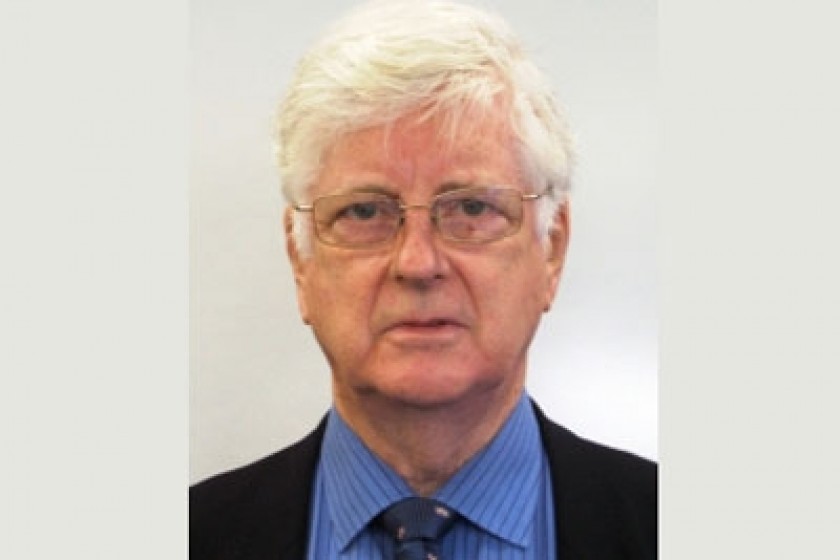
One Does Not Make Peace with One’s Friends; One Makes Peace with One’s Enemies
“Any initiatives which would further reaffirm the non-use of force principle would be certainly welcomed. I remain convinced that a big deficit of the process is that there is no mechanism on the ground to deal with incidents. I am not only talking about an investigation mechanism, but also about one where local commanders can regularly sit together to discuss concerns such as shootings, troop movements, unmanned aerial vehicles over-flights, and other factors that contribute to insecurity for the soldiers.
What we, in co-operation with other international actors, can do is to facilitate continued dialogue, help restore and maintain confidence, including through humanitarian initiatives and supporting contacts between people. We believe such initiatives could create atmosphere inductive to making progress in political negotiations. ”
“Personally, as Special Representative of the Irish Chairmanship in Office of the OSCE, I can speak also from the perspective of a country which knows well the cost of the conflict to the ordinary people and the suffering it brings. If you think about the people on the ground, about their safety and prosperity, and about the future of their children, you realize the necessity for compromise and finding a negotiated solution. And the experience of Northern Ireland confirms that this is possible.
It cannot be repeated often enough that one does not make peace with one’s friends; one makes peace with one’s enemies. To start perceiving your enemy as a negotiating partner is not easy, but this must be done, as peace and safety of thousands of people are at stake”, - said the special representative of the OSCE Chairperson-in Office for the South Caucasus Ambassador Padraig Murphy during an internet press conference, which was organized for Armenian, Azerbaijani and Georgian journalists by Region Research Center in the framework of the project ''Enhancing Knowledge and Understanding of 'The Other Side' by Armenians and Azerbaijanis through Alternative and First-Hand Information”, supported by the British Embassies in Armenia and Azerbaijan. “Hetq'' also participated in the internet press conference:
Hetq - What are your expectations from the upcoming meeting of the Foreign Ministers of Armenia and Azerbaijan?
- I hope that the Foreign Ministers will take a constructive, future-oriented approach to the negotiations, and move closer to a solution. No matter how much the international community can be involved, the solution in the end lies with the sides to the conflict, and not with mediators, whose role is to promote such a solution. It is essential to prevent any further backward slide in the process, and to ensure that already existing commitments are implemented.
Hetq - How viable and implementable, in your view, is the plan of the new authorities of Georgia to normalize the relations with Abkhazia, South Ossetia and Russia?
- The statements made so far by representatives of the new Georgian administration with regard to normalizing relations with Russia, including through an appointment of the special representative, are encouraging. Representatives of the new government were present at the latest, 21st round of the Geneva International Discussions – this was a welcome initiative which demonstrated their commitment to the process. We hope for their continued positive involvement, and we also hope that other participants of the Geneva International Discussions, including the Russian Federation, will demonstrate a constructive approach, too.
In fact, the Geneva International Discussions is the framework which already includes participants from Moscow, Tbilisi, Sukhumi and Tskhinvali, so in this way the OSCE has already been assisting the dialogue - and will continue doing so in the future as one of the Co-Chairs of the Geneva International Discussions.
As for whether the future of the conflict regions, as you put it, is predefined, I would argue that the Geneva International Discussions are not about the political status of Abkhazia and South Ossetia. This is not on the agenda of the Discussions. The dialogue is about security and stability as well as about displaced persons and humanitarian issues. Within the Geneva International Discussions, the OSCE is putting a special emphasis on the need to improve the daily life of people in the conflict-affected areas. We are implementing EU-funded projects on providing potable and irrigation water to several hundreds of families living on both sides of the administrative boundary line.
You can read the full version of the internet press conference in the website “Public Dialogues” http://www.publicdialogues.info/en/node/359.
 Videos
Videos Photos
Photos




Write a comment